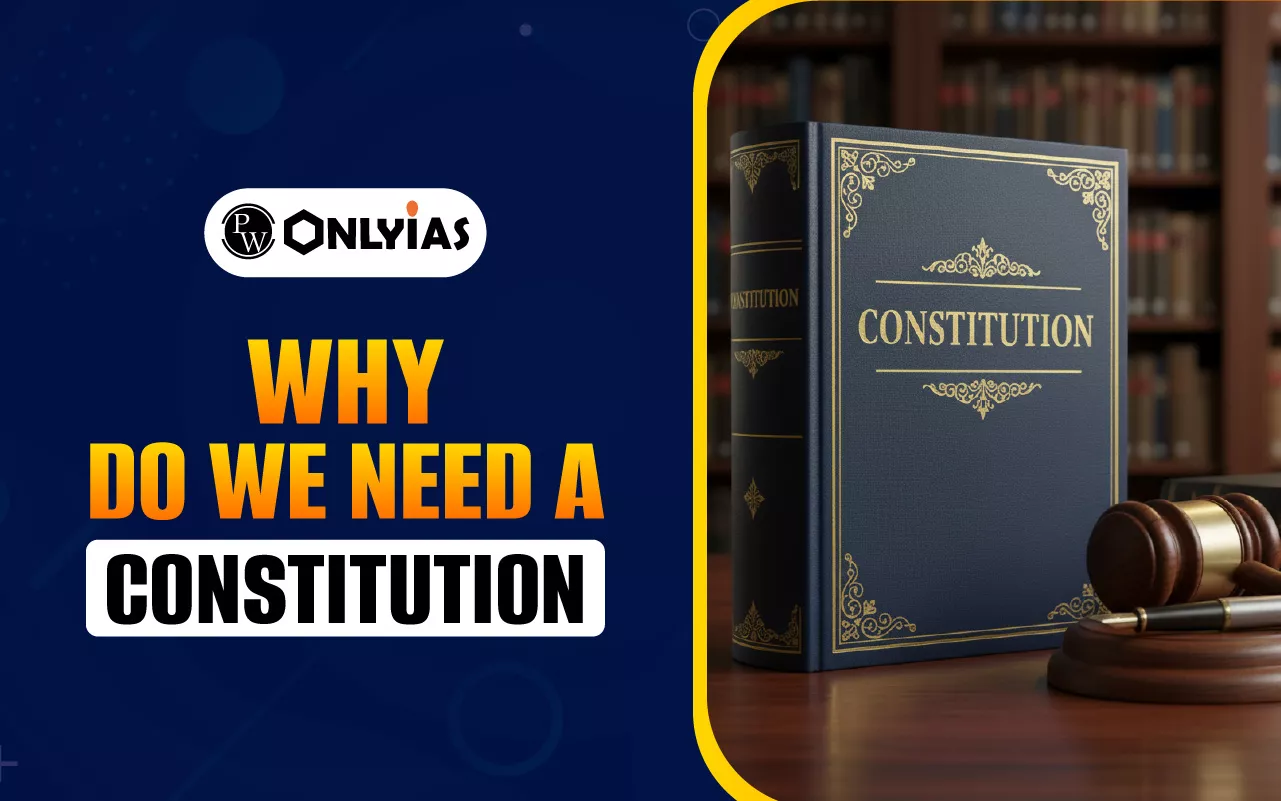Why do we need a Constitution? It is the supreme law that guides how a country is run. A constitution protects citizens’ rights, limits misuse of power, and keeps order in society. A nation without a constitution will likely find itself in chaos, experiencing unfair treatment and instability in governance.

Why Do We Need a Constitution: Every country needs a set of rules to run smoothly. It will help the citizens live together in peace and order. In India, these rules are written in a book called the Constitution of India. The constitution is like a guidebook for the government and for the citizens.
Every country needs a constitution that outlines its rights, duties, and the way its leaders should govern. Without any set of written rules like a Constitution, there would be confusion, unfair treatment, and no clear path for progress.
A constitution refers to the supreme law of the land. It is a written rulebook that contains the basic principles and rules by which a country is governed. It makes sure that everyone, including the government, follows the same laws.
A Constitution explains how power is shared between different groups and what rights citizens enjoy. It is the foundation of a nation’s political and legal system. Some of the key points include the following:
The constitution is important because it creates order and fairness in the country. It also prevents misuse of authority by leaders. Without a Constitution, rules could change anytime, leading to chaos. The importance of why do we need a constitution can be summarised as follows:
Having a constitution for any nation is not just important; it is necessary. It gives direction to both the government and the citizens. The reasons behind why do we need a Constitution are as follows:
Different countries have different constitutions. A good constitution must have certain qualities to work well for the citizens. These features ensure that the law remains fair and useful for future generations. Some of the characteristics and features of a Good Constitution are as follows:
Check Out UPSC CSE Books
Visit PW Store
In a democracy, the citizens of that country choose their leaders. The constitution ensures that these leaders work within limits and respect the will of the people. It makes sure democracy functions smoothly. The role and functions that answer Why do we need a Constitution are:
The Constitution of India is the world’s longest written constitution. It came into effect on 26 January 1950, which is now celebrated every year as Republic Day. Dr B. R. Ambedkar is known as the chief architect of the Indian Constitution. It is special because it reflects India’s diversity and promotes unity among people of different cultures, religions, and languages.
Some of the important aspects of why do we need a Constitution in India are as follows:
A country without a constitution would face many problems. There would be no common law to guide leaders or protect citizens, and this justifies the fact Why do we need a Constitution. This could lead to injustice and conflict. The possible consequences for a nation not to have a constitution are as follows:
A constitution is the backbone of a nation. It is not just a book of rules but a symbol of fairness, justice, and unity. It tells citizens about their rights, duties, and the way leaders should govern. It also ensures that power is not misused and that every individual is treated with respect.
Ready to boost your UPSC 2026 preparation? Join PW’s UPSC online courses today!
A Constitution is the supreme law of a country. It is a written rulebook that explains how the government works and protects the rights of citizens.
The Constitution is important because it maintains order, prevents misuse of power, protects freedoms, and brings unity among people.
A good Constitution should be clear, flexible, stable, fair, and protect citizens’ rights while balancing power between different branches of government.
In a democracy, the Constitution guides elections, limits leaders’ powers, protects freedoms, maintains equality, and ensures accountability of leaders.
Without a Constitution, there could be dictatorship, loss of rights, unfair treatment, confusion, conflicts, and no stability in governance.
<div class="new-fform">
</div>